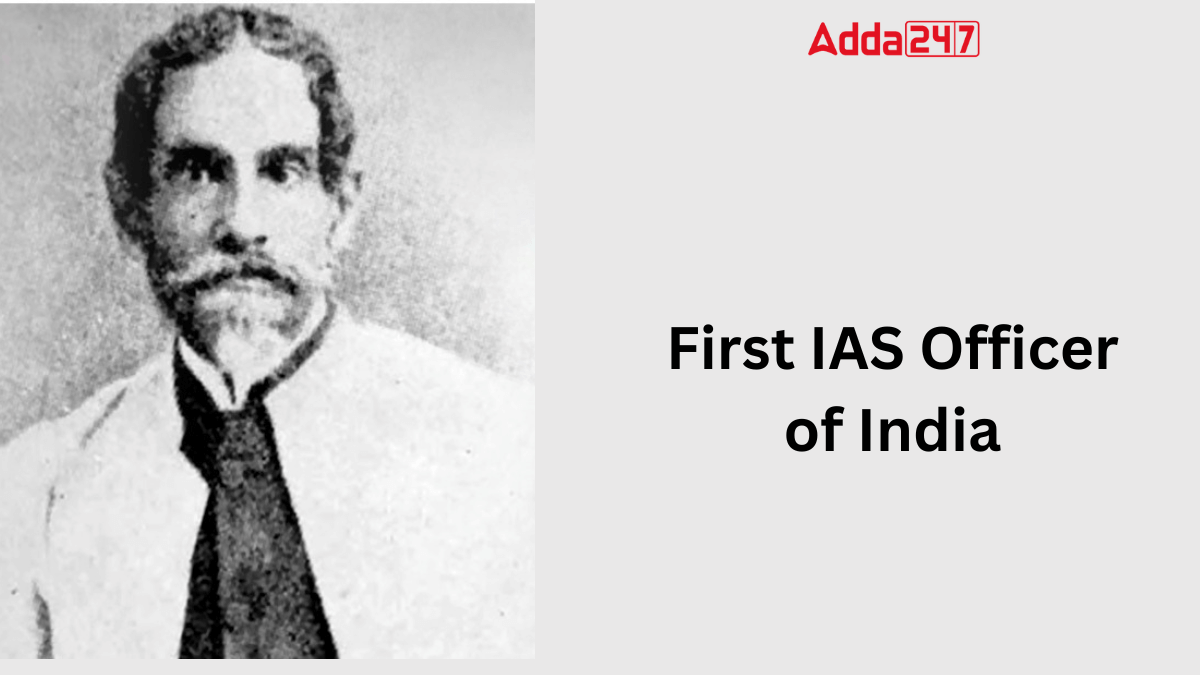The Indian Administrative Service (IAS) is one of the most prestigious civil service in India, and its officers are key to managing the country’s administration. But who was the first IAS officer in India? Let’s explore the answer of this with some interesting facts.
First IAS Officer of India
Satyendranath Tagore was the first Indian to become an IAS officer (then called Indian Civil Service) in 1863. Born on 01st June 1842 in Kolkata, he broke barriers during British rule. Besides his civil service, he was a poet, writer and reformer. His achievements remain a proud milestone in India’s history.
Early Life and Education of Satyendranath Tagore
Satyendranath Tagore was born on 01st June 1842 into the renowned Tagore family of Jorasanko in Kolkata. His father, Maharshi Debendranath Tagore, was a prominent philosopher, and his mother was Sarada Devi. He studied at Presidency College, Kolkata, where he excelled academically.
Becoming the First IAS Officer of India
In 1863, Satyendranath Tagore became the first Indian to clear the Indian Civil Service examination. This was a significant achievement during British rule, as it broke the barriers of racial discrimination in government positions. He officially joined the service in 1864, marking a historic milestone.
Diverse Contributions and Achievements
Beyond his administrative excellence, Tagore’s contributions extended to various fields:
- Literature and Poetry: Tagore was a prolific writer and poet. He penned literacy work like “Sushila O Birisingha”, “Bombai Chitra” and “Nabaratanamala.” His literacy endeavors enriched the Bengali language and culture.
- Social Reformer: As a member of Brahmo Samaj, Tagore actively participated in social reforms. He advocated for women’s rights and worked towards the empowerment of women in Indian society.
- Linguist and Compost: His linguistic prowess was evident through his compositions. He composed songs that resonated with patriotism and unity, with his Bengali language song “Mile Sabe Bharat Santan, Ektan Gago Gaan” often hailed as the first Indian anthem of India.
History of Indian Civil Service
The Indian Civil Service has a long history connected to India’s time under British rule. The Indian Civil Services started in the 19th century by the British East India Company. With time, this service became more complex and started handling things like making rules, running the government and helping the public. After the Independence of India in 1947, this old Indian Civil Service changed into the new Indian Administrative Service (IAS). This service was designed to help the new democratic nation run smoothly and serve its people well.
Facts about Indian Administration Services
The Indian Administration Services holds a significant position in India’s bureaucracy. Here are some key facts that illuminate its significance:
- Satyendranath Tagore: A Pioneer’s Legacy: Tagore’s legacy extends his administrative achievement. He was a linguist, writer, composer and advocate of women’s rights, contributing significantly to society.
- Scope of IAS Officers: IAS officers hold crucial roles across government bodies, regulatory agencies, public sector organizations and more, making them instrumental in policy implementation and governance.
- Father of Civil Services: Charles Cornwallis, along with other reformists, laid the groundwork for modern civil services in India, emphasizing meritocracy and professionalism.
- First woman IAS Officer: Anna George Malhotra etched her name in history as the first woman to join the IAS, breaking gender barriers.



 Which River is known as the Chocolate Ri...
Which River is known as the Chocolate Ri...
 Which City is known as the Banana Capita...
Which City is known as the Banana Capita...
 Historic Approval: State Cabinet Clears ...
Historic Approval: State Cabinet Clears ...








